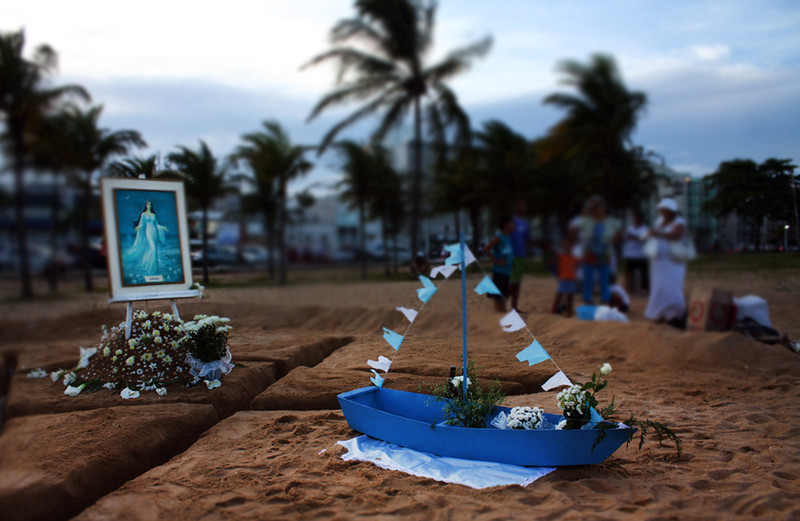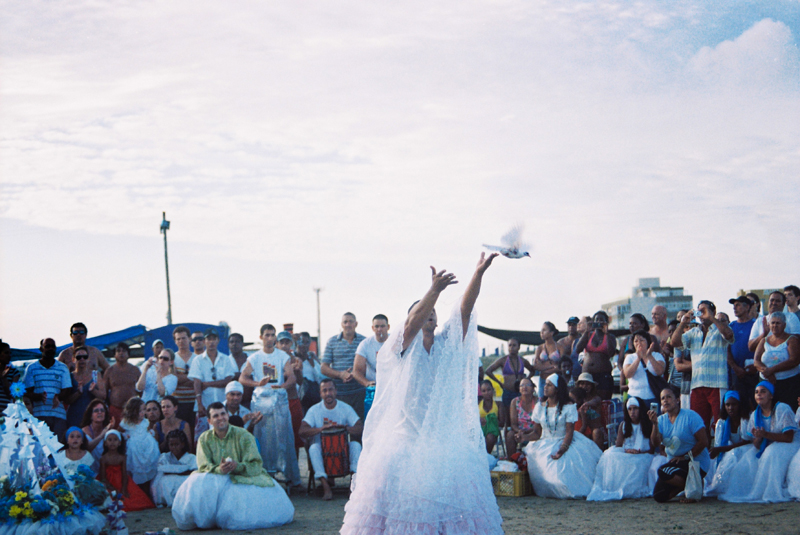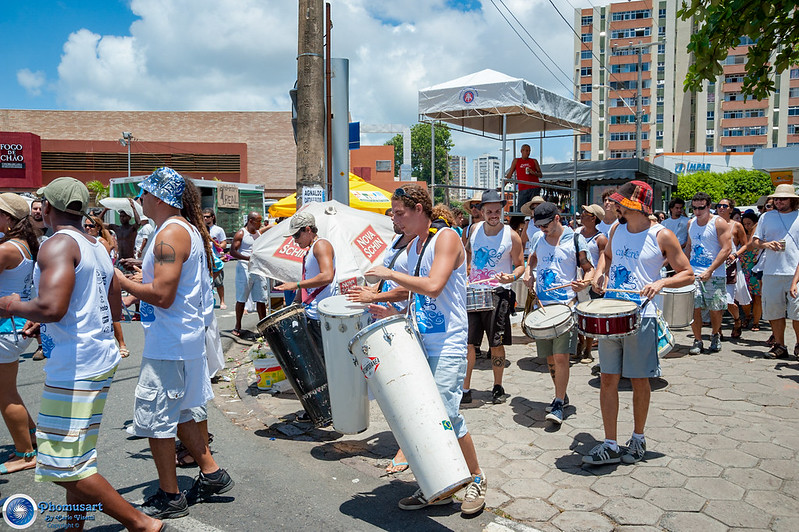Iemanjá (Festival of the Goddess of the Sea)
A Mystical Celebration of the Sea Goddess and Afro-Uruguayan Culture
2026/02/01
Every February, Montevideo’s coastline comes alive with vibrant colors, rhythmic beats, and spiritual energy during the Iemanjá Festival. The salty breeze mingles with the scent of incense and flowers as thousands gather to offer prayers to Iemanjá, the goddess of the sea—a unique experience rooted in Afro-Uruguayan and Afro-Brazilian traditions. Locals and visitors alike are invited to immerse themselves in a festival that celebrates faith, community, and cultural pride through all five senses.
Held annually on February 2nd, mostly along Montevideo’s beaches and waterfronts, the festival welcomes devotees, families, and tourists. With music, dance, and prayers to the sea, everyone can experience a sacred moment of connection with the ocean’s power.
Main Attractions
Offerings to Iemanjá
The heart of the festival is the ritual of offering gifts to Iemanjá. Flowers, candles, perfumes, and handmade crafts are placed in small boats or baskets and sent out to sea. These colorful offerings, illuminated by candlelight on the evening waves, create a magical and serene atmosphere.
Music and Dance
The beaches and surrounding streets come alive with traditional Afro-Uruguayan rhythms, especially candombe drumming, inviting everyone to dance. Drum and dance groups perform in sync with the waves, blending prayers to the goddess with communal joy.
Key Events
The main events include processions carrying statues of Iemanjá to the shore and the ritual offerings. There are also live music performances, dance workshops, and communal meals featuring traditional foods. The night ends with bonfires, music, and a festive gathering under the stars.
Costumes and Decorations
Many participants wear white or blue clothing to symbolize the sea and purity, adorned with shells, beads, and flower crowns. Altars and venues are decorated with flowers, candles, and statues of Iemanjá, creating a beautiful space that blends spirituality and festivity.
Traditional Food & Drink
Festival-goers enjoy fresh seafood, herb- and spice-infused stews, rice dishes, and more. Mate tea, tropical juices, and sweet treats are popular, making the culinary experience a highlight that nourishes both body and soul.
Cultural and Historical Background
The Iemanjá Festival originates from Afro-Uruguayan and Afro-Brazilian religious traditions (such as Candomblé and Umbanda), where the goddess Iemanjá is venerated as the protector of the sea, fertility, fishermen, and sailors. It is a symbolic festival that fuses the history and faith of African descendants with local culture.
February 2nd coincides with the Catholic Feast of the Virgin Mary, embodying the syncretism between African and Christian traditions. For many, this day is one of renewal, healing, and strengthening community bonds—a time to honor ancestors and nature alike.
Participant Voices
I came from Brazil and was warmly welcomed, sharing in the rituals and music with locals. The sound of drums, the sight of offerings floating on the sea, and the unity in prayer left me deeply moved and refreshed.
Fun Facts
- Iemanjá is depicted as a mermaid or sea goddess, symbolizing fertility and the mysteries of the ocean.
- Offerings are traditionally placed in small boats or baskets and set afloat at sunset.
- Candombe drumming at the festival is recognized as UNESCO Intangible Cultural Heritage.
Festival Dates
The Iemanjá Festival is held every February 2nd along the beaches and waterfronts of Montevideo.
The event schedule is subject to change. Please check the official website for the most up-to-date information.
Media
Information
| Name | Iemanjá (Festival of the Goddess of the Sea) |
| Country | Uruguay |
| Area | Montevideo, Playa Ramirez |
| Date | 2026/02/01 |
| Link |
Upcoming Festivals
Up Helly Aa United Kingdom
A Night When Fire and Viking Pride Blaze in Shetland
2026/01/29Winterlude Canada
A Wonderland of Ice, Light, and Smiles in Canada’s Capital Region
2026/01/30Carnival of Viareggio (Carnevale de Viareggio) Italy
A Spectacular Parade of Giant Papier-Mâché Masterpieces
2026/01/30Fiesta de la Candelaria(Virgin of Candelaria) Peru
A Grand Dance Festival of Faith and Folklore Echoing on the Shores of Lake Titicaca
2026/01/31Thaipusam Malaysia
A Pilgrimage of Prayer and Penance Illuminates Batu Caves
2026/01/31Jaisalmer Desert Festival India
When Rajasthan’s Golden Dunes Dazzle with Color and Culture
2026/02/01Festivity of Saint Blaise, the patron of Dubrovnik Croatia
The Procession of Faith, Freedom, and Community in Dubrovnik
2026/02/01Iemanjá (Festival of the Goddess of the Sea) Uruguay
A Mystical Celebration of the Sea Goddess and Afro-Uruguayan Culture
2026/02/01Bob Marley Week Jamaica
A Week Celebrating the King of Reggae in the Heart of Jamaica
2026/02/03Sapporo Yuki Matsuri Japan
A Dreamlike Northern Winter Painted with Snow and Light



